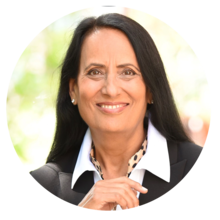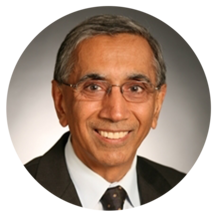About this Presentation
In order to have a happy career (and life) we need to do enough of what we desire and not too much of what we don’t desire. Two major obstacles prevent our happiness: 1) we have limited awareness of our basic desires, and 2) in satisfying several desires and avoiding others, we are stressed by conflicts. For instance, one may choose a scientist career that satisfies the curiosity desire, but that jeopardizes a desire for physical exercise. One may choose to be a CEO to satisfy the desire for power/achievement and social status, but be stressed by having too much social contact or too little acceptance. Steven Reiss found through a factor analysis of 6,000 people that there are 16 basic desires motivating human behavior, which are observable as actions supporting survival in the animal kingdom. I have found that career (and life) discontentment can be diagnosed and improved by choosing pairs of these 16 desires with which to formulaically build and resolve evaporating clouds. I take the viewer through a journey of my own career discontent and resolution, and provide a step-by-step procedure to diagnose and resolve your own. Video length: 1:01:15. PDF: 30 slides.
What Will You Learn
To help you get the most value from this session, we’ve highlighted a few key points. These takeaways capture the main ideas and practical insights from the presentation, making it easier for you to review, reflect, and apply what you’ve learned.

Understanding and aligning with one's basic desires is crucial for career satisfaction and happiness.
Bad multitasking, driven by the desire to fulfill multiple desires at once, can hinder achievement and project completion.
Reframing tasks that are not congruent with one's basic desires in a way that makes them more so can help in managing tasks that are necessary but not desired.
Instructor(s)
Christophe Lambert
Christophe G. Lambert, Ph.D., is a Professor of Medicine and Division Chief of Translational Informatics at the University of New Mexico. He is also the founder, past CEO and current Chairman of Golden Helix, a Bozeman-based bioinformatics company. Throughout his career, he has applied systems thinking to the challenging problems affecting life sciences and healthcare research, with numerous articles and presentations diagnosing systemic problems and prescribing the change management required for improvement. As a lifetime TOCICO member, certified in the Theory of Constraints (TOC) Fundamentals (2004) and Thinking Processes (2006), he applied TOC within his own company for a decade, and currently applies it to problems in mental and organizational health. Originally from Canada, Dr. Lambert received his bachelor’s degree from Montana State University, and a PhD in computer science from Duke University.

Ms Alka Wadhwa
Alka Wadhwa is an experienced consultant and process improvement expert with over 24 years of expertise in the Theory of Constraints (TOC), Lean Six Sigma, and organizational performance optimization. She has successfully led projects in healthcare, financial services, and manufacturing, driving significant improvements such as a 67% boost in hospital operations and a 140% increase in outpatient visits.
Previously, Alka Wadhwa spent 17+ years at GE Global Research Center, where she led initiatives to enhance various GE businesses through advanced technologies, process redesign, and system optimization. Founder of Better Solutions Consulting, LLC, she specializes in using TOC, Six Sigma, and data analytics to streamline operations and build high-performance teams.
Her work has earned her multiple accolades, including the Empire State Award of Excellence in healthcare.

Dr Gary Wadhwa
Dr. Gary Wadhwa is a Board Certified Oral & Maxillofacial Surgeon with extensive experience in the field. He completed his Oral & Maxillofacial Surgery training at Montefiore Hospital, Albert Einstein College of Medicine in Bronx, NY, and has served as an Attending at prestigious institutions like St. Peters Hospitals, Ellis Hospital, and Beth Israel Hospital in NY. With a career spanning over two decades, he was the former CEO and President of a group specialty practice in NY from 1994 to 2015. Dr. Wadhwa holds an MBA from UT at Knoxville, TN, and has undergone additional training in System Dynamics at MIT, Health System Management at Harvard Business School, and Entrepreneurship and healthcare innovations at Columbia Business School. Committed to expanding access to Oral & Maxillofacial Surgery care, he is currently engaged in a meaningful project to provide healthcare services to underserved populations in inner city and rural areas through non-profit Community Health Centers.
